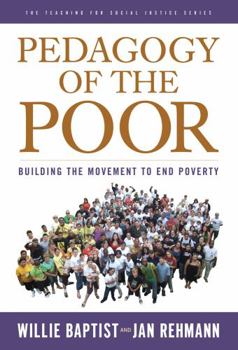Pedagogy of the Poor: Building the Movement to End Poverty
Select Format
Select Condition 
Book Overview
In this book, the authors present a new kind of interdisciplinary pedagogy that brings together antipoverty grassroots activism and relevant social theories about poverty. Closely linked to the Poverty Initiative at Union Theological Seminary, this unique book combines the oral history of a renowned antipoverty organizer with an accessible introduction to relevant social theories, case studies, in-class student debates, and pedagogical reflections. This multilayered approach makes the book useful to both social activists committed to eradicating poverty and educators looking for ways to teach about the struggles for economic and social justice. Pedagogy of the Poor is an essential tool of self-education and leadership development for a broad social movement led by the poor to end poverty.
Featuring a 5-part series of interviews with Willie Baptist, this important book examines:
Firsthand examples of the poor organizing the poor over the past 3 decades. The effect of neoliberalism, high-tech capitalism, and the economic crisis on poverty. Theoretical lessons drawn from the Watts Uprising, Martin Luther Kin, Jr.'s Poor People's Campaign, and the National Union of the Homeless. The role of religion and morality in the antipoverty movement. The relevance of hegemony theory and ideology theory for social movements. Resources, methods, and practices for teaching social justice.




